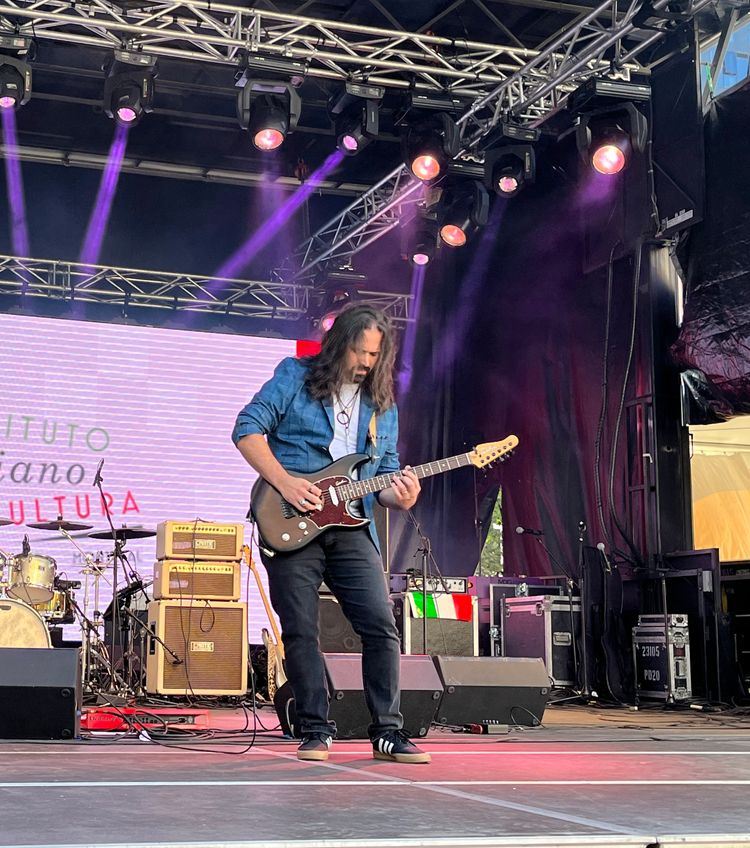Demystifying AI in Music Production: From Algorithms to Artistry

In the ever-evolving landscape of music production, artificial intelligence (AI) is emerging as a transformative force, revolutionizing the way we create, produce, and experience music. From algorithms that analyze vast datasets to tools that improve the creative process, AI is breaking down barriers to new music and audio possibilities.
Understanding the Algorithms
At the heart of AI in music production lie sophisticated algorithms capable of processing immense amounts of musical data. Machine learning algorithms, for instance, can analyze vast libraries of music to identify patterns, trends, and nuances. This enables AI systems to learn the intricacies of different genres, styles, and even individual artists.
**1. Genre Exploration
AI algorithms can seamlessly navigate through diverse musical genres, discerning the unique characteristics that define each one. Whether it's the rhythmic complexities of jazz or the harmonic structures of classical music, AI systems can absorb, interpret, and replicate these elements with remarkable accuracy.
**2. Composition Assistance
AI is becoming an invaluable ally to composers, providing suggestions for chord progressions, melodies, and arrangements. By understanding the nuances of a particular style or artist, AI algorithms can generate musical ideas that complement the creative vision of the composer.
**3. Beat Making and Rhythmic Innovation
Beat making has reached new heights with the introduction of AI-driven tools. These tools can analyze rhythmic patterns from a vast array of genres, offering producers an extensive palette of percussive elements to experiment with. The result is a fusion of rhythmic innovation that pushes the boundaries of traditional beat-making.
**4. Dynamic Arrangement
AI is redefining the traditional song structure by offering dynamic arrangement suggestions. By analyzing the emotional content of different sections, AI systems can propose variations in intensity, instrumentation, and pacing, contributing to more engaging and emotionally resonant musical compositions.
From Assistance to Artistry
While the role of AI in music production is often framed as a tool for efficiency and inspiration, it goes beyond mere assistance. AI has the potential to improve the creative process, allowing artists to explore uncharted territories and push the boundaries of their own creativity.
**1. Collaborative Creativity
AI is not replacing human creativity; instead, it's becoming a collaborator. Artists can engage in a symbiotic relationship with AI tools, drawing inspiration from algorithm-generated ideas and molding them into unique expressions of their own artistic vision.
**2. Personalized Production Workflows
AI adapts to the preferences and workflows of individual artists. Whether it's suggesting specific sounds, automating repetitive tasks, or providing real-time feedback, AI tailors its functionality to complement the unique needs and styles of each creator.
**3. Breaking Creative Blocks
Creativity is a dynamic and often unpredictable process. AI can be a remedy for creative blocks by offering fresh perspectives, introducing novel ideas, and reigniting the spark of inspiration. It serves as a dynamic co-creator, pushing artists to explore new territories.
The Ethical Implications
As we navigate this exciting intersection of technology and artistry, it's essential to consider the ethical implications of AI in music production. Questions of originality, intellectual property, and the potential homogenization of musical expression must be addressed. Striking a balance between the creative potential of AI and the preservation of artistic integrity will be a crucial aspect of the ongoing dialogue.
Looking Ahead
Demystifying AI in music production is not about unraveling its complexities but embracing its potential. From algorithmic analysis to collaborative creation, AI is expanding the horizons of musical expression. As the technology continues to evolve, the future promises a harmonious integration of human artistry and artificial intelligence, ushering in an era where the boundaries between man and machine blur in the pursuit of innovation.
As we embark on this transformative journey, one thing is certain: AI is not a replacement for the human touch; it's a catalyst for new dimensions of creative exploration.
What are your thoughts on AI in music production? How do you see it influencing the creative process? Share your insights and join the conversation on the future of music creation with AI.





Comments ()